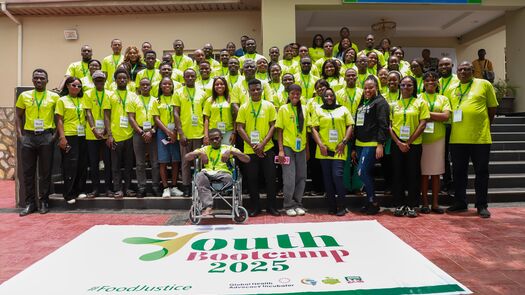February 19, 2026
 At the Global Health Advocacy Incubator (GHAI), legal analysis is central to our advocacy. The legislation we and our partners support (and often draft) must be legally sound, and it must be defensible against legal challenges.
At the Global Health Advocacy Incubator (GHAI), legal analysis is central to our advocacy. The legislation we and our partners support (and often draft) must be legally sound, and it must be defensible against legal challenges.
For our Obesity Prevention Program, legal challenges are most likely to come from the food and beverage industry. In May, the program hosted a three-day legal workshop to equip academics and advocates who work on healthy food policy with an understanding of the key legal implications of their work. They were also trained to preempt and counter potential legal challenges from the food and beverage industry.
Twenty-four attendees gathered in Miami, Florida from around the world, including Barbados, Brazil, Colombia, Jamaica, Mexico, and South Africa. Two guest speakers – Alexandra Jones from the George Institute in Australia and Ekaterine Karageorgiadis from the Instituto Alana in Brazil – facilitated sessions, along with GHAI’s legal team. A goal of the workshop was to empower participants to help bridge the gaps that can exist between academic or advocacy work and legal frameworks in order to create more effective policies.
 GHAI also introduced a tool that outlines legal considerations in public health policy design and implementation, created for partners to incorporate into their multidisciplinary work. Participants found the tool “extremely useful for our work,” but equally valuable was the ability to learn from the experiences of other countries—where advocates are often confronted by similar challenges and industry tactics. It was “so valuable to learn from the wide and varied expertise and experiences of the facilitators and participants,” one of the participants said.
GHAI also introduced a tool that outlines legal considerations in public health policy design and implementation, created for partners to incorporate into their multidisciplinary work. Participants found the tool “extremely useful for our work,” but equally valuable was the ability to learn from the experiences of other countries—where advocates are often confronted by similar challenges and industry tactics. It was “so valuable to learn from the wide and varied expertise and experiences of the facilitators and participants,” one of the participants said.
Most importantly, the gathering helped create and strengthen a cross-regional network working together to address common issues. As one participant explained, “I learned a lot, and feel excited about implementing what I learned.”



